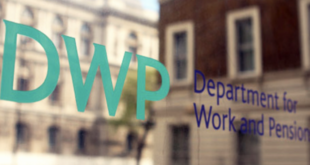I’M already heartily sick of the new winter of discontent, and brassed off with self-righteous union barons braying about how hard done-by their membersare.
My income isn’t going up in line with inflation, and nor is that of anybody else I know. I’m not happy about that and nor are they, but hey, that’s life. We’ll tighten our belts another notch and get on with it, just as millions of others are doing.
That’s reality in the midst of an economic downturn, and to lots of us it looks like the current wave of strikes by rail and postal workers in particular belong to a fantasy world in which industries that aren’t paying their way somehow have the miraculous means to shell out double-digit pay rises.
Those of us who remember the original winter of discontent of 1978/79, when the country ground to a standstill in freezing weather and uncollected rubbish piled up in the streets have no sympathy with those groups of workers who seem determined to turn the clock back to a bygone age.
To me, there’s a whiff of class war in the posturing of some union leaders, a desire to give the hated Tories a bloody nose just like the industrial dinosaurs of the early 1970s did, pushing the hapless government of Edward Heath around with the mercilessness of playground bullies.
Except it isn’t the grey and strife-ridden 1970s, but the second decade of the 21st century when industry and working lives have changed. Commuters who can’t get to work because of rail strikes, or businesses that can’t get their post, may be hostile to the Government, but recognise their inconvenience is being caused by union attitudes stuck in the past.
Theirs is a misplaced nostalgia. The striking postal workers are like turkeys voting for Christmas. Every day’s stoppage takes them closer to their jobs disappearing because Royal Mail is haemorrhaging money and losing business.
Without comprehensive restructuring, it does not have a future. That won’t be altered by strikes, which are only making matters worse.
Three Yorkshire companies I know of that send products ordered online to customers have already abandoned Royal Mail because of the strikes and taken their business to rival delivery companies. That picture is going to be replicated across the country.
The interminable rail strikes are equally self-defeating, undermining a network which consumers have turned away from, not only because working lives have changed since the pandemic, but surely also because the services are often so ghastly.
There can’t be a regular rail user anywhere in Yorkshire who doesn’t step onto the platform without a tremor of trepidation that their train is going to be cancelled, delayed or overcrowded.
Little wonder that many are finding alternative ways to get to work, or if they can, increasing the number of days spent working from home.
The fact that some of the striking rail workers earn getting on for twice as much as many of the passengers they aren’t carrying reliably is infuriating for long- suffering commuters.
Here is an industry desperately in need of reform and modernisation of antiquated working practices, and the only people who seemingly can’t see that are the members of the rail unions, despite it being obvious that many of them privately agree.
Of all the groups striking or threatening action – college lecturers, civil servants and airport ground handlers among them – the only group likely to attract any public support are nurses.
Their pay has been a scandal for years and they deserve a substantial uplift, even if the country can’t afford the 19.2 per cent being demanded. But they should be regarded as a special case, not only because of the gratitude we all owe for their work during the pandemic, but because each and every one of us will need the NHS at some point.
But the rumblings of discontent from the other groups disrupting everyday lives are out of step with the mood of millions, especially those working in the private sector who know their jobs depend on adapting to changing times and commercial pressures.
Sticking to working practices established decades ago, and insisting that they cannot be changed, is simply not an option.
And that will remain true even if the new breed of union barons get their wish and see a change of government whenever the next election comes, because Labour would not be able to afford – financially or politically – to give massive pay rises to industries that refuse to live in the real world.
Source link



